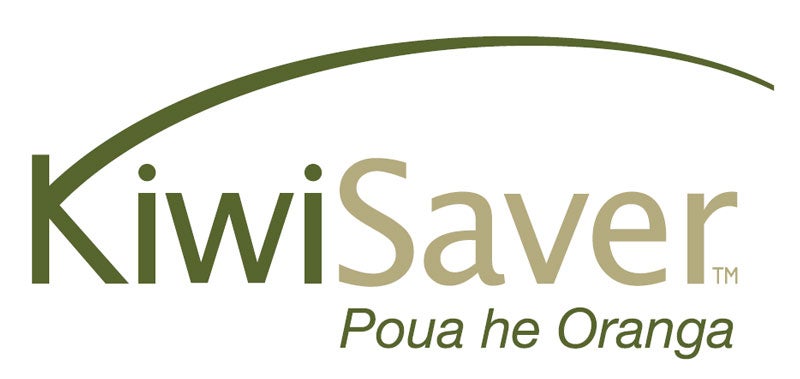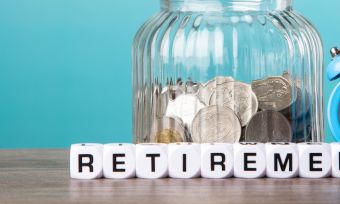It has been a mixed year for KiwiSaver. The latest report by the Financial Markets Authority shows that the average Kiwisaver balance has risen 4.3%, while investment returns were down $1.9 billion. So, managing your KiwiSaver fund and know the ins and outs to safely grow your investment is more important than ever.
Money we put into KiwiSaver is hard earned, and is there to provide for a comfortable retirement. Best returns are hoped for, and low fees and costs are expected. But is KiwiSaver taxed and how much is the government skimming off the top? Canstar explores KiwiSaver and tax…
Is KiwiSaver taxed?
Yes. Your KiwiSaver is taxed.
But there is a little more to it…
Only your investment gains are taxed. Not your principal (your contributions + employer contributions). So, if you put $10,000 into KiwiSaver, and over a year it earns $1200, you will only be taxed on the $1200 gain. Not your $10,000 principal.

How much is KiwiSaver taxed?
How much your KiwiSaver is taxed depends on what kind of scheme you are in. There are two types of KiwiSaver scheme:
- Widely-held superannuation schemes
- Portfolio investment entities (PIEs)
Most KiwiSaver schemes are PIEs. PIEs invest your contributions in different investments, such as equities, cash, property and fixed-interest terms. The tax you pay in these schemes is called the Prescribed Investor Rate (PIR) and varies depending on your income.
→Related article: Best PIE Funds in NZ
If you do happen to have a widely held superannuation scheme, this is taxed at a fixed rate of 28%. If you are unsure of what type of scheme you have, you can check your KiwiSaver product disclosure statement
How is PIR calculated?
Your PIR is calculated on how much money you earn. This can be calculated from either of the prior two financial years (ending March). This means if you made a lot last year, but not so much the year before, you can use the earlier tax year to calculate your PIR, and possibly lower the tax you pay on your KiwiSaver returns.
Do note that when calculating your PIR, you have to account for not only your taxable income, but any income earned from PIEs (such as your KiwiSaver or Sharesies portfolio).
| Taxable income | Taxable income plus any PIE income | PIR |
| $14,000 or less | $48,000 or less | 10.5% |
| $48,000 or less | $70,000 or less | 17.5% |
| All other cases | 28% |
Or, you can find your PIR here.
Do I need to pay my KiwiSaver taxes myself?
You won’t need to worry about paying your KiwiSaver tax. Your KiwiSaver provider should pay this for you.
You and your employer’s contributions
As mentioned above, when tax is calculated on your KiwiSaver balance, it only includes investment gains. All of your contributions, and your employer’s contributions, are tax-free.
However, before these contributions end up in your KiwiSaver account, they are subject to tax like any other income.
Your contributions
Your KiwiSaver contributor rate is calculated on your pre-tax income. So, if your pre-tax salary is $1000, and you had your KiwiSaver contribution rate set to 10% ($100) you would still pay income tax on the full $1000. Even though, after your KiwiSaver contribution, you are only taking home $900.
Your employer’s contributions
Additionally, your employer has to contribute the equivalent of at least 3% of your income. This is in addition to your salary.
So if you earn a salary of $100,000, your 3% employer KiwiSaver contributions ($3000) is added to this. Giving you a total income of $103,000. But this contribution is taxed prior to it being put into your KiwiSaver. This is referred to as ESCT, or, employer superannuation contribution tax.
Because employer KiwiSaver contributions are in addition to your salary, they are not taxed under PAYE (income tax) and have their own tax rates (the aforementioned ESCT).
This means that the amount that actually ends up in your KiwiSaver account is below 3%. As the 3% contribution has had the ESCT deducted.
The tax rates for employer contributions are:
| Employee annual income | Employer Superannuation Contribution Tax rate (ESCT) |
| $0 – $16,800 | 10.5% |
| $16,801 – $57,600 | 17.5% |
| $57,601 – $84,000 | 30% |
| $84,001 – 216,000 | 33% |
| $216,000 + | 39% |
You and your employer’s contributions are not taxed under KiwiSaver. That is, they won’t be factored in when your provider is calculating your tax at the end of the financial year, they are taxed prior to arriving in your KiwiSaver account.
Do note that you and your employer can agree to include any employer contributions as part of your salary (as opposed to in addition to). In this case, those contributions would be taxed under PAYE, along with the rest of your income. Because the income brackets for PAYE are lower, you could find that under this method, you are paying a higher tax rate on your employer’s KiwiSaver contributions.
→Related article: What is PAYE Tax?
Income tax rates in New Zealand
| Amount earned NZ$ | Income Tax applicable |
| $0-$14,000 | 10.5% |
| $14,001-$48,000 | 17.5% |
| $48,001-$70,000 | 30% |
| $70,001-$180,000 | 33% |
| $180,001+ | 39% |
→Related article: NZ Tax Rates: What Are NZ’s Tax Brackets?
Compare KiwiSaver Providers with Canstar
If you have KiwiSaver, you’ll want to be getting the best deal. Different KiwiSaver funds suit different people. Are you in the right fund for your needs?
Additionally, KiwiSaver providers charge fees for their services, and some charge more than others. Plus, your KiwiSaver funds get invested into a range of shares. How does your return on investment compare with other providers?
At Canstar we compare a range of KiwiSaver funds and award the best providers accordingly. If you want to know more, or want to see how your KiwiSaver fund stacks up, click the button below:
Compare KiwiSaver funds with Canstar
About the author of this page
This report was written by Canstar Content Producer, Caitlin Bingham. Caitlin is an experienced writer whose passion for creativity led her to study communication and journalism. She began her career freelancing as a content writer, before joining the Canstar team.
Enjoy reading this article?
You can like us on Facebook and get social, or sign up to receive more news like this straight to your inbox.
By subscribing you agree to the Canstar Privacy Policy





Share this article